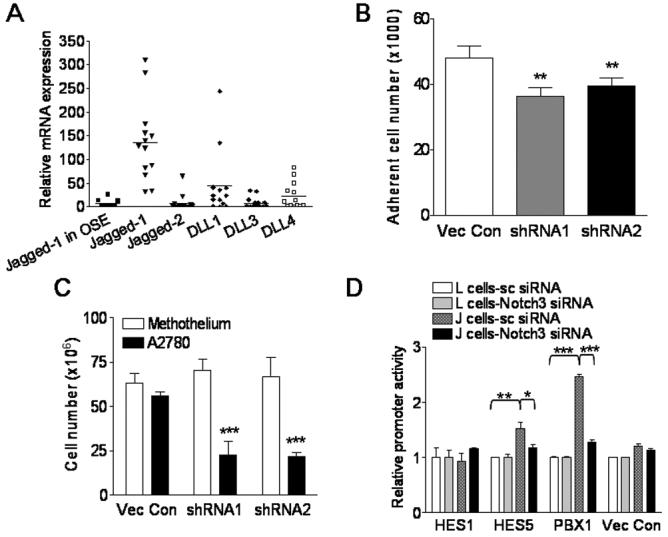Figure 4. Expression of Jagged-1 in human peritoneal mesothelial cells is important in supporting adhesion and growth of ovarian tumor cells.

A. Quantitative RT-PCR measured Notch ligand expression levels in peritoneal mesothelial cells. B-C Coculture experiments. Human mesothelial cells expressing Jagged-1 were transfected with Jagged-1 shRNA and served as feeder monolayer. They were cocultured with Notch3-expressing A2780-GFP cells. B. Compared to vector-transfected control, Jagged-1 shRNA treatment in mesothelial cells significantly reduced the binding capability of A2780-GFP cells. C. Mesothelial cells pretreated with Jagged-1 shRNA significantly lost the ability to support growth of A2780-GFP cells. Similar number of mesothelial feeder cells was present in each experiment. Data was measured at 48 hours after coculture. D. Coculture of J cells with ovarian cancer cells stimulates the promoter activity of candidate Notch3 target genes. Promoter reporter constructs for Notch3 candidate target genes including Hes1, Hes5, and Pbx1 were transfected into Notch3-expressing OVCAR3 cells. The transfected cells were then cocultivated with J cells or L cells. High luciferase activity was detected in Pbx1 and Hes5 promoter construct-transfected groups when cocultured with J cell. This luciferase activity could be potently suppressed by Notch3-specific siRNA. * p<0.1; ** p<0.01; *** p<0.001, Student’s t test.
